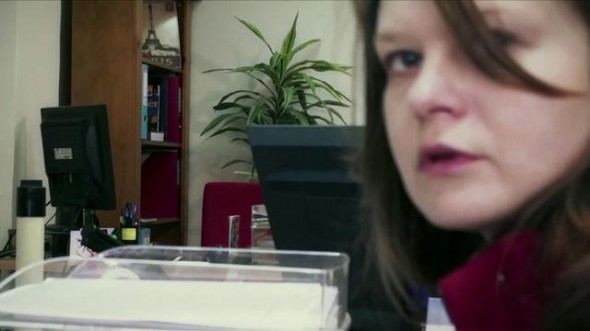
However, Zeitindjioglou explores the subject in the strangest possible way – he travels to Turkey with his Polish-born wife Anna and he allows her to play tour guide and reporter while he stays behind the camera. Anna’s interviewing skills leave a lot to be desired (she seems to spend a lot of time pressing information from Turks who barely speak English), and she is clearly much more comfortable playing the role of a lazy, silly tourist enjoying Istanbul’s night life and historic sites.
At several points throughout the film, the viewer is assaulted with strange animated sequences based on a tale of how Zeitindjioglou’s ancestor escaped the genocide while wearing a shabby wolf fur. Every now and then, Zeitindjioglou is able to get in a few points on the crassness of the Turkish government’s continued refusal to acknowledge the events of the past, and there is even a snippet of a Turkish propaganda piece that claims the Armenian people were merely relocated without any great loss of life.
But, for the most part, the painfully serious subject is trivialized in a tiresome and self-indulgent manner.





















































